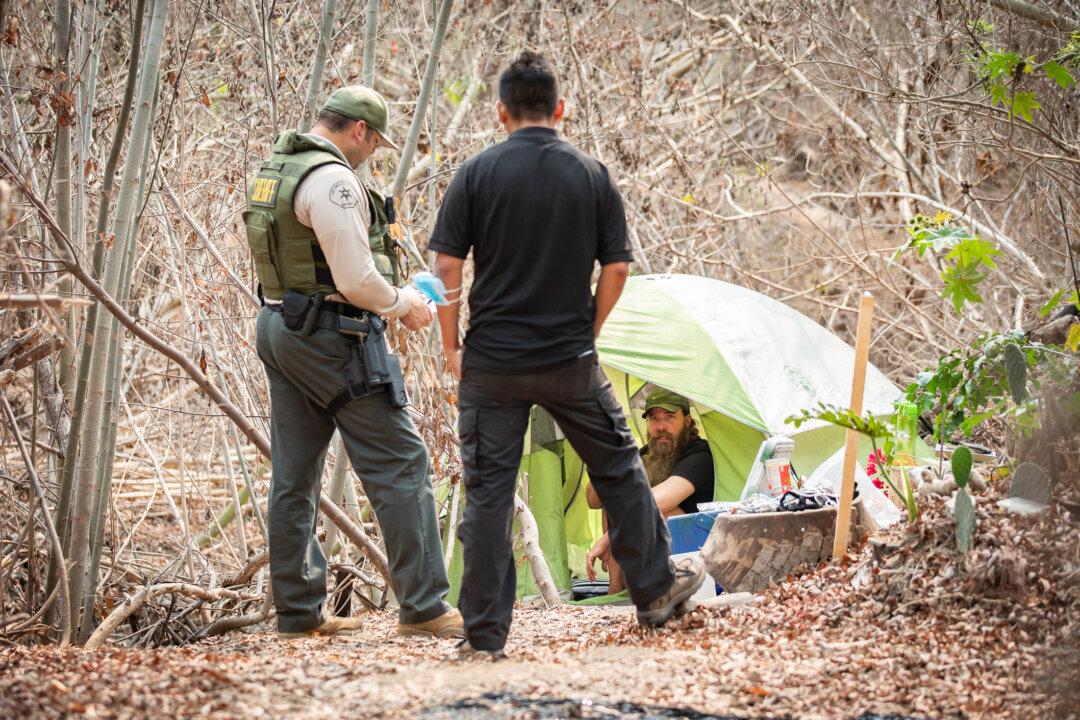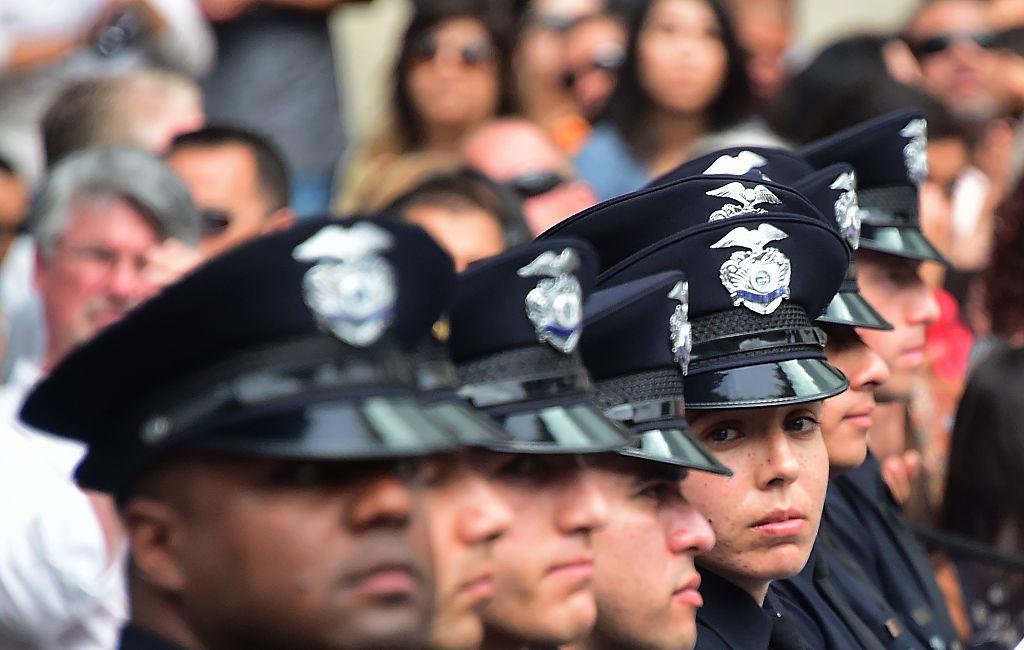Franklin swings down a rope from a blue camping tent perched a couple of hundred feet high, tucked between a thicket of shrubs and trees about a mile up Tuna Canyon Road in the western Santa Monica Mountains. He’s without a shirt, wearing just a pair of faded black shorts.
“I dug this spot out a long time ago, maybe 20 years ago; it was only big enough for one person to sit. And it’s fallen down a couple times, but it’s cool. I can get out of here in five seconds if I needed to, for a fire or anything,” Franklin told The Epoch Times.





